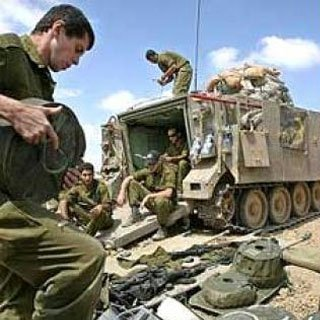Why are the counter-terrorist operations not being called off? By Ruslan Nasipov, special to Prague Watchdog
Last week I almost began to share the view of those who were talking about the possibility that the so-called “counter-terrorist operations” in Chechnya might soon be called off. I had been going to express my doubts that it would happen any time soon, but changed my mind: after all, the devil plays all kinds of tricks.
Everyone will agree that war is a savage business. But its savagery is a regulated one. In formulating the principles of warfare, mankind has focused on the rights of non-belligerents.
Of course, attempts are always made to circumvent these restrictions. For that reason, the violations that occur most frequently are treated as crimes under international humanitarian law. They are described, in other words, and the measure of accountability and punishment is defined accordingly. Most of the crimes committed against civilians during military operations are considered to be war crimes.
When it made its preparations for the second Chechen war, the Russian leadership tried to take account of the errors of 1994-96. Chief among these was the failure to perceive the impossibility of winning a conflict in which the opposing party is the people. Consequently, the new military operation had to be planned so that the people who had taken the path of armed resistance felt as though they were in a besieged fortress and no one would be prompted to help them, primarily out of fear for their own lives and the lives of their families. It was necessary to pursue a policy of deterrence – of terror against the whole of the “enemy” population.
In other words, the Russian leadership deliberately placed the situation beyond the framework of the law, and established a regime of arbitrary despotism in the Chechen republic. The result of this was to make possible the shelling of civilian targets and refugee columns, and the conducting of “mop-up” operations which involved the seizing of hundreds and thousands of totally innocent citizens. These operations also involved extra-judicial executions and disappearances, as well as widespread torture and mistreatment.
Russia’s Federal Law on Combating Terrorism naturally makes no mention of such things. But neither does it contain any long-term guarantees of human rights, and it makes no provision for control over their observance. Allowing the use of Russian troops in an internal conflict, it gives no precise indications regarding the limits of what is permitted. In this way the preconditions are created for a broad and arbitrary interpretation of the law, and there is plenty of room for conjecture.
Today’s Chechnya is the outcome of fear, of absolute vulnerability to the “man with the gun”, of a demonstrative disregard for the basic rights of the people who live here, of total terror camouflaged as “counterterrorist operations”. But fear is a temporary phenomenon. If its source disappears, the fear also gradually evaporates. This is a property of human nature, and there is nothing anyone can do about it. Then the same old questions come to the surface again: “Why did they kill my son, kidnap my brother, on what grounds did they torture me, and isn’t all this the criminal practice of criminal authorities?”
Russia’s leadership is afraid of being held accountable for the atrocities it has committed. It knows only too well what it has done in Chechnya, and will therefore attempt to maintain the status quo for some time yet to come. Were the situation to develop any differently, there would be no guarantee that the people who are victims of the war would not raise uncomfortable questions.
Photo: Xronika.Az. (Translation by DM) (P/T)
DISCUSSION FORUM
|

